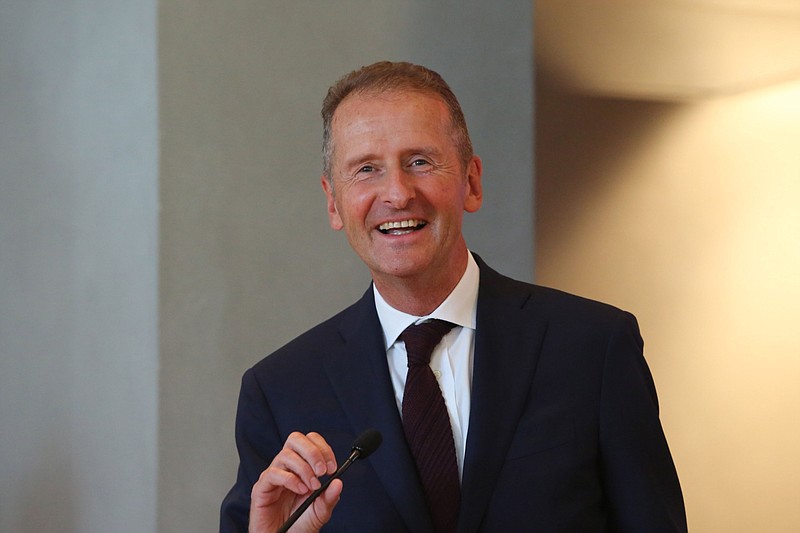Volkswagen's chief is struggling to win support for his picks to fill top executive posts and is pushing the carmaker's board to back more significant reforms, according to people familiar with the matter.
Herbert Diess has proposed more than three candidates to succeed Chief Financial Officer Frank Witter who didn't win backing from key stakeholders ahead of a vote by the automaker's supervisory board, said the people, who asked not to be identified as the discussions were confidential.
One of the candidates was Audi CFO Arno Antlitz, who moved to the luxury-car division in March after clashing with powerful labor leaders in his previous job as finance chief for the main VW car brand, the people said. There's also no agreement yet on filling the vacant purchasing chief position. The two roles are key to Diess' efforts to cut costs and boost efficiency at VW, which just approved a $178 billion investment plan.
Diess, 62, has been trying for four years to untangle VW's unwieldy conglomerate structure and focus on its main car operations, but his efforts so far have yielded only modest results. In talks with top stakeholders, the CEO has raised the prospect of lengthening his contract past 2023, but winning support for a required two-thirds voting majority from VW's supervisory board would be an uphill battle, according to the people. Usually the contract would be up for renewal a year before it expires.
VW's works council chief and supervisory board member Bernd Osterloh said in a LinkedIn post last week he's unaware of a dispute and wants to continue to work with Diess "to successfully develop Volkswagen further in the next years."
VW declined to comment. Representatives for the Porsche and Piech family, who own the majority of the company's voting shares, didn't respond to requests for comment.
Diess has mounted an aggressive push into electric vehicles that analysts see becoming a competitive advantage, but his hard-nosed management style has ruffled feathers across the organization. He joined VW from BMW five years ago and pushed aside several executives in a sweeping shakeup of management this summer.
Renewed infighting could bog down VW's efforts to challenge Tesla Inc.'s electric-car leadership by spending a record 73 billion euros on technology over the next five years. Diess has said the company's survival rests on undergoing a massive transformation to run its cars on batteries and sophisticated software.
VW's CFO Witter, 61, plans to step down from the post at the end of June 2021 for personal reasons. The carmaker has been looking for a purchasing chief since announcing in June of this year that Stefan Sommer would leave after less than two years in the job.
Some investors have questioned VW's commitment to reform, citing the company's stubbornly high costs and more decisive steps taken by rivals to restructure legacy operations.
Diess has frequently clashed with the influential unions that often are backed by the German state of Lower Saxony, the company's second-largest shareholder with a 20% stake. The board took away the CEO's direct control of the namesake VW brand in June following a dust-up over his request for a contract extension and other issues.
The Porsche and Piech family generally supports Diess' overhaul efforts. But the billionaire clan that holds a 53% voting stake tends to avoid direct conflicts with the unions and Lower Saxony, which have far-reaching veto rights cemented by company bylaws.
Sanford C. Bernstein analyst Arndt Ellinghorst wrote an open letter to family leaders Wolfgang Porsche and Hans Michel Piech last week, urging them to clarify if Diess still enjoys their full support.
"It is very disturbing to see the ongoing public infighting between the workers council and management," Ellinghorst wrote, without being specific. "It is impossible to run a company when every controversial management decision is being undermined from within the organization."
